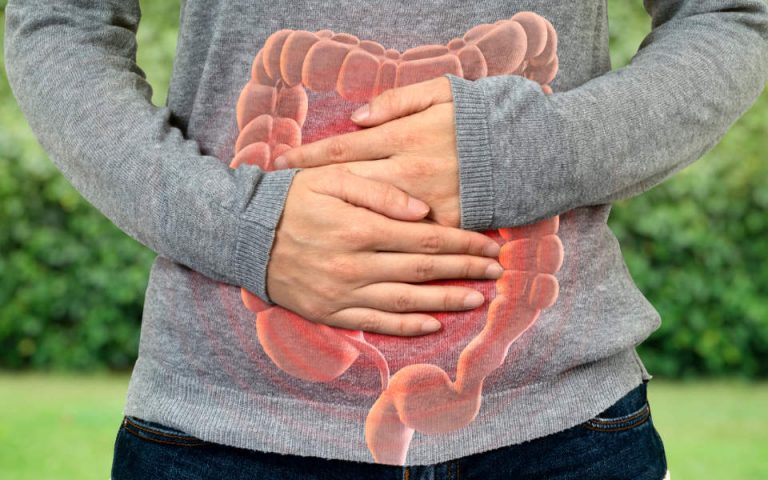Vitamin D is something that most of us have heard about or came across with, and for good reason. It is a powerful vitamin that is essential for overall health. Sufficient amounts of Vitamin D in the body can result in a lot of health benefits. On the other hand, having low vitamin D levels can lead to physiological imbalances and several negative conditions.
This article will discuss all the essential things you need to know about Vitamin D.
What is Vitamin D?
According to the National Institutes Of Health, it is a fat-soluble vitamin that is present in relatively few dietary sources. Unlike vitamins B complex and C which dissolve in water and is readily absorbed by the bloodstream, vitamin D dissolves in fat. This means that during digestion, vitamin D derived from food gets absorbed in the digestive tract along with fat and is stored by the body until it is utilized.
The body naturally produces vitamin D through a process called synthesis. Ultraviolet rays from sunlight, when it strikes the skin, triggers this natural production process. Sun exposure, therefore, has a big role in the endogenous production of this vitamin. Hence, it is also referred to as the ‘sun vitamin’. Dietary sources and supplementation are also recommended in cases where sufficient exposure to morning sun rays isn’t possible.
Vitamin D for Bones and Mental Health

Vitamin D is a highly essential nutrient for several important body processes. For example, it plays a key role in the absorption of calcium in the body, among many others. This is indispensable in maintaining bone health, sturdy teeth, and preventing osteoporosis.
Without enough vitamin D from natural, dietary and supplementary sources, bones can become brittle and can weaken early on in life.
This vitamin also plays an important role in maintaining good mental health. According to a study cited by Healthline, researchers and experts have found a link between depression and vitamin D deficiency. Depression, in turn, can lead to low blood levels. This is especially more prevalent in older people who have a relatively lower endogenous production of the said nutrient.
Other Vitamin D Benefits for Health
Aside from maintaining stellar bone and mental health, here are some of the benefits of Vitamin D on the body.
1. Modulates cell growth
According to the Mercola website, Vitamin D prevents the proliferation of abnormal cell growth, thus making it a key agent in cancer prevention. It helps cells go through the normal process of proliferation, differentiation and apoptosis (or natural cell death).
2. Helps reduce risks of acquiring the flu
Another medical study linked vitamin D to a heightened protection of the body from influenza viruses. The way it helps the body is through strengthening the immune response to fight off flu viruses. More studies are being conducted about the effect of vitamin D on infectious diseases. With the advent of novel flu viruses, such as Covid 19, the role of vitamin D as a first line of defense in fighting viral infections will become even more clear.
3. Healthy pregnancy
Medical News Today highlighted a study that showed vitamin D can help mothers have smooth sailing pregnancies. Low levels of vitamin D correlated with a higher risk of pregnancy complications such as preeclampsia, gestational diabetes and preterm birth. Sufficient levels of the vitamin in an expecting mother can reduce chances of developing such adverse complications.
4. Helps regulate blood sugar levels
Vitamin D stimulates the pancreas to make insulin which the body will use to metabolize sugar. Without insulin, there is no way for the body to absorb glucose into the cells. This leads to high levels of sugar in the blood, and conditions that result in chronic diabetes. Accompanied by a healthy low to moderate carb diet, vitamin D can help prevent the above problems.
5. Prevents dementia
An article from the Mayo Clinic suggests that vitamin D has a direct effect on improving cognitive health. This is associated with a lower risk of developing dementia and Parkinson’s disease later on in life.
6. May improve cardiovascular processes
The vitamin can help reduce the risk of developing cardiovascular diseases, and preventing heart attacks or strokes. Low vitamin levels in the blood resulted in a 153% increased risk of getting a heart attack, according to Eco Watch.
7. Can improve muscle strength and lean mass
A study of 116 healthy adults with an age range of 20 to 74 years old showed that vitamin D derived from sunlight helped increase muscle mass in women. Although the same effect is not seen on men, the role of the vitamin for muscle improvement is worth considering.
Vitamin D Immune System Benefits

Earlier, we mentioned how vitamin D can help fight off flu viruses. This is because it boosts the immune system response and gives the body a stronger defense against infection.
According to the Clinical Therapeutics website, this is how vitamin D plays a role in the body’s natural defenses:
White blood cells, the body’s “military army” that defends against foreign bodies and pathogens, is full of vitamin D receptors. Upon production or intake of vitamin D in the body, it binds to the white blood cells and help facilitate many processes necessary for cell survival. One of these processes is identifying foreign bodies or pathogens, and killing them.
Another way by which vitamin D and immune system work together is by helping reduce inflammation and oxidative stress. This leads to lesser toll on the body during metabolic processes.
Lower oxidative stress is linked to a lower risk of developing cancer, heart disease, and diabetes. On the other hand, eliminating inflammation from the body will assist in preventing cardiovascular diseases such as myocardial infarctions, strokes, and atherosclerosis.
1. Effects of vitamin D on fertility
According to the Cleveland Clinic, a sufficient level of vitamin D increases the likelihood of a pregnant woman to have a healthy, full term pregnancy. Women who have difficulty conceiving and giving birth successfully are routinely checked for low Vitamin D levels. A low level of this vitamin is one of the risk factors for infertility and other related health issues.
However, the important thing to remember for vitamin D supplementation is proper intake in reasonable amounts. Excessive intake may also cause problems, and can be as bad as having a deficiency of the vitamin.
The study highlighted by the Cleveland Clinic showed that out of 193 women who have vitamin D deficiency and trying to conceive, 108 women became pregnant in 12 months after vitamin D supplementation. This further supports the view that vitamin D can assist reproductive processes.
The benefits of vitamin D for fertility are as follows:
- Helps Pregnant Woman Absorb More Calcium. Calcium is one of the most needed minerals during pregnancy. For an expecting woman, however, calcium can become depleted because of providing the nutrients to the baby. Essentially, the fetus will “steal” from the mother’s calcium reserves to support its own growth. This could lead the mother to have brittle bones that might cause problems during pregnancy and childbirth. With a proper intake of calcium and vitamin D, the mother can meet her increased calcium absorption needs.
- Reduces Risk Of Postpartum Bleeding. Abnormal bleeding after pregnancy can cause prolonged hospital stays and even maternal death. Having a sufficient intake of vitamin D can help reduce the risks of hemorrhage after giving birth, as per the same study above by the Cleveland Clinic.
2. Vitamin D and weight loss
According to a study highlighted by Medical News Today, having excess belly fat is linked to low levels of Vitamin D. While a deficiency of the vitamin is not the main case of obesity, but it is one of the contributors to adding those extra fat around the waste area.
Belly fat, also known as visceral fat, is the hardest type of fat to get rid of from the body. It is a result of prolonged unhealthy diets, stress, hormonal imbalance, and a high sugar intakes. Having a larger waistline can also be a risk factor for diseases like heart attacks, diabetes, stroke and cancer.
The study mentioned above discovered that as the amount of belly fat grows, vitamin D levels tend to go down. This could mean that obesity and being overweight is correlated to the level of vitamin D in the body.
Although scientists are still studying the causal relationship between weight loss and vitamin D deficiency, or whether one causes the other and vice versa, it is sufficient to note that there is a close association between them. Actions must then be taken by the individual to reduce belly fat through proper diet and exercise, and take the best vitamin D supplement to meet the recommended daily intake. This ensures that there is a two-pronged approach to solving the problem.
Here are other ways by which vitamin D can aid in losing weight:
- Helps Reduce Fat Mass. A recommended intake of 1,000 IU vitamin D daily can help reduce fat mass in obese people. This is because vitamin D tells the hypothalamus in the brain to decrease the production of parathyroid hormone, a substance that is known to help the process of storing body fat.
- Has Anti-oxidant and Anti-inflammatory Properties. Vitamin D is one of the 24 essential nutrients that the body needs for survival. It affects cells and genes within almost every organ in the body. As a micronutrient, it synthesized substances known as peptides to reduce stress and fight off infection. In effect, stress on the body and inflammation caused by obesity may be reduced, if coupled with a healthy diet and exercise.
- Can Help Build Muscle Mass and Burn More Calories During Exercise. In a study highlighted by Men’s Health, it is shown that people with higher levels of Vitamin D tended to burn more calories and lose more weight. Even tiny increases in vitamin D intake helped participants lose more weight while doing the same exercises and maintaining the same healthy diet. Furthermore, the study showed that sufficient vitamin D levels in the body can help individuals develop more stamina during exercise, thus burning more fat and building more muscle in the process.
Vitamin D Deficiency Causes

An article published in WebMD showed the main causes of a lack of vitamin D. A lot of people are deficient in vitamin D without even knowing about it. As in the case with a lot of nutrient deficiencies, an individual may be unknowingly suffering from it for a long period of time. It is only when certain medical conditions arise that the need for supplementation is addressed.
Here are some of the main causes of vitamin D deficiency:
- Not getting enough sunlight. Having a sedentary lifestyle that limits exposure to outdoor sunshine can deplete vitamin levels in the body. The reason for this is that the sun’s rays are responsible for triggering vitamin D production level in the body upon skin contact. Thus it is advisable to avoid staying indoors for prolonged periods of time (such as days and weeks). Instead, go out or take a walk in the morning sun for around 10-30 minutes at a time, several times per week.
- Strict plant-based diets. Those who restrict their diet to vegetarian foods have a high risk of vitamin D deficiency. This is because vitamin D is a relatively rare vitamin and its primary dietary sources are not plants. Those who follow vegan diets are advised to take vegan vitamin D supplements to compensate for their minimal intake of the said micronutrient.
- Aging. As people age, the kidney’s natural ability to convert vitamin D to its readily usable active form becomes lesser. In some cases, kidneys become damaged due to illness and the distribution of vitamin D becomes compromised. This leads to a vitamin deficiency in some people.
- Problems In The Digestive Tract. Because vitamin D is fat soluble, it is absorbed in the digestive tract and stored along with fat and ready for use. However, if there are digestive tract conditions that limit the body’s capability to absorb nutrients, the absorption of vitamin D may also suffer. Such conditions include Crohn’s Disease and Celiac Disease.
- Obesity. Fat cells extract vitamin D from the blood. Thus, if there is an abnormally high level of body fat in the body, this could deplete the supply of the vitamin, leading to a chronic deficiency.
The above causes of vitamin D deficiency, except pre-existing medical conditions, can be solved by supplementation of the vitamin.
Vitamin D Deficiency Symptoms
There are specific warning signs or symptoms that a person is deficient in vitamin D. Here are some of them:
- Getting Easily Sick of Infected Often. Acquiring colds, flu or cough many times in a year can signal that there might be a problem in one’s immune system response to infection. In many cases, a lack of vitamin D is at the very core of this problem.
- General Feeling of Tiredness. This is a symptom that may be caused by any number of other medical conditions. However, it is also a hallmark sign of vitamin D deficiency. Feeling easily fatigued and exhausted might mean that your body doesn’t have the proper amount of essential micronutrients.
- Back Pains and Brittle Teeth. It was mentioned earlier in this article that vitamin D helps the body absorb more calcium, the “bone building” nutrient. Chronic back pains, as well as brittle teeth could mean that an individual is not absorbing enough calcium due to low vitamin D levels. This is especially true if the back pains experienced resonate from the spine. If not remedied, it could lead to early osteoporosis and other effects of low calcium supply.
- Depression. A recent study showed the close relationship between depression and D deficiency. In the same study, providing supplementation to the participants improved their mood.
- Wounds Take A Long Time To Heal. Diabetes is not the only cause of slow wound healing, it can also be a sign of low vitamin D levels (in fact it can be caused both). Slow healing means the body has limited capability to fight inflammation and infection. Thus, this can be a warning sign that supplementation might be needed, as well as a visit to the doctor’s office to rule out any other potential cause.
Dietary Sources of Vitamin D

According to Healthline, up to 50% of the world’s population does not have sufficient vitamin D due to a lack of exposure to sunlight. Interestingly, there are limited dietary choices of vitamin D compared to other nutrients. Individuals with a deficiency of the vitamin (or trying to avoid low levels of it) can get it from the following vitamin D foods:
- Salmon. A serving of salmon (around 3.5 ounce) can contain up to 1,300 IU of vitamin D per serving. That’s slightly higher than the recommended daily intake of the vitamin (800 to 1,000 IU per day). To avoid excess intake, salmon eaters should also regulate the portions they eat. Sea-caught fish, also known as wild salmon, is more preferable because it contain more vitamin D. Fresh sea-caught fish also does not have any preservatives mixed into them.
- Herring. It is a kind of fish that is consumed all over the world. A 100 gram serving of herring contains around 215 IU of vitamin D, which is close to one fourth of the daily recommended vitamin D intake. However, herring also contains high amounts of sodium, so it is important to regulate intake as well to prevent other problems such as high blood pressure and kidney stones.
- Other Types Of Fatty Fish. Aside from salmon and herring, other types of fatty fish are good sources of vitamin D. Sardines, mackerel and halibut are good dietary sources of the vitamin, providing up to 300 to 400 IU per 100 gram serving.
- Cod Liver Oil. It contains around 448 IU of vitamin D3 per teaspoon. This is a very rich source of the said vitamin if you prefer not to eat lots of fish to meet the recommended daily intake amount. Aside from vitamin D, cod liver oil is also a rich source of vitamin A. Just like any other vitamin-rich foods, exercise caution in the amounts consumed.
- Tuna. Not only is it rich in vitamin D, it is also low on calories, making it a good option for those who are looking to lose weight. Tuna contains 268 IU of vitamin D per 100 gram serving. Sticking to this consumption level is best in order to prevent high doses of methylmercury, which tuna contains a lot of.
- Egg yolk. Whole organic eggs also contain vitamin D, although in smaller quantities compared to fishes. One typical egg yolk contains only 37 IU the vitamin. However, chicken that is raised in pasture and open sunlight tend to produce eggs that contain higher vitamin D levels (around 4 to 4 times higher).
- Mushrooms. It is the only good plant source of vitamin D, containing up to 2,300 IU per 3.5 ounce serving! However, commercially grown mushrooms may have a lower level of the vitamin due to lack of exposure to sunlight. Nevertheless, adding this food in reasonable quantities to one’s diet can provide a good health boost.
Taking Vitamin D3 Supplements
According to Harvard Health Publishing, taking a vitamin D3 supplement is good but overdoing it can have adverse health effects.
The best way to get vitamin D natural exposure to sunlight, as well as acquiring it from dietary sources. However, some people may live in conditions that limit their sun exposure and access to foods rich in vitamin D.
In such cases, it is important to get a vitamin D supplement only with advice from a doctor or a professional nutritionist. People with pre-existing health conditions should consult a medical expert before starting supplementation of a vitamin. This ensure that the individual is getting the right amounts and not over-supplementing.
The recommended daily amount of vitamin D for most people is only 600 to 800 IU (with 1,000 IU still acceptable but considered slightly higher than normal). This should already include amounts produced by the body through sunlight, dietary sources, and supplements.
Conclusion
Vitamin D has a lot of health benefits, and it is free for everyone to acquire in the form of sunlight and natural food sources. With a growing awareness today about pandemics and infectious viruses, vitamin D could be the missing piece that will help the world fight contagion. Its benefits for boosting the immune system is well-documented by many scientific studies.
Furthermore, its role in fighting obesity, infertility, pregnancy complications, and cardiovascular problems makes it one of the most potent nutrients to consume for overall health.


